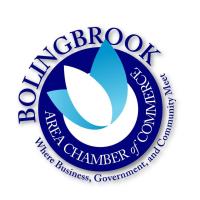Wage and Hour Coverage, also known as FLSA coverage, provides for a sublimit of coverage to defend an Insured against claims arising from wage and hour disputes under the Fair Labor Standards Act. The importance of this coverage for all commercial risk types must be considered when quoting the Employment Practices Liability Insurance.
The FLSA is continuously reviewed as complaints continue to be litigated alleging employer violations of it. Notably, it is reinterpreted over the years, and has evolved through time.
Jackson-Lewis, a firm that leads in the areas of employment practice law, noted in their Wage & Hour Law Update some interesting takeaways recently in this specific area. An excerpt of this article, written by Jefrrey W. Brecher and Eric Magnus, states as follows:
“The most recent opinion letters address (with links to the letters themselves):
FLSA 2018-20: Whether time spent by employees voluntarily attending benefit fairs and undertaking wellness activities such as biometric screening, weight-loss programs and use of an employer-provided gym, are considered compensable working time (it is not).
FLSA 2018-21: Whether 29 U.S.C. § 207(i), the commissioned sales employee overtime exemption, applies to a company’s sales force that sells an internet payment software platform (under the facts presented, it does). Notably, this opinion letter is the first acknowledgement by the DOL of the Supreme Court’s recent holding in Encino Motorcars LLC v. Navarro, 138 S. Ct. 1134 (2018), that FLSA exemptions are to be given a “fair reading,” rather than a “narrow construction” as previously applied by the Department and many courts.
FLSA 2018-22: Whether members of a non-profit organization who serve as credentialing examination graders for one to two weeks per year, and who are not paid for their services but are reimbursed for their expenses, may properly be treated as volunteers rather than employees (under the facts presented, they may).
FLSA 2018-23: Whether 29 U.S.C. § 213(b)(27), exempting from overtime employees who work at a movie theater establishment, likewise applies to those employees who work at dining services operated by, and accessible only within, the theater (it does).”
The entire article can be read at https://www.wageandhourlawupdate.com/ which US Pro highly recommends.
Despite each of these opinions favoring the employer, the risk to a wage and hour complaint being brought by non-exempt employees continues to rise, and in some industry classes, remains a very big risk. It is preferred to purchase an EPLI coverage form that includes some limit of wage and hour coverage.



















